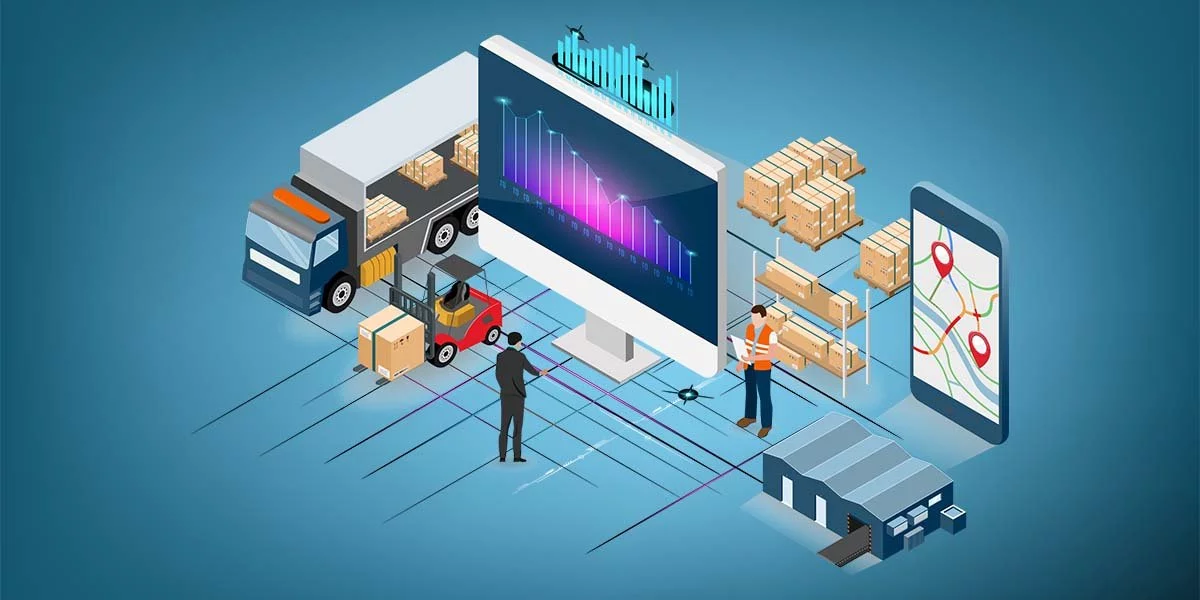
Voice AI can revolutionize the logistics industry by streamlining operations, improving efficiency, and enhancing overall productivity. Here are some ways in which Voice AI can assist the logistics industry:
1. Real-Time Tracking and Updates:
Voice AI-powered virtual assistants can provide real-time tracking and status updates on shipments and deliveries. Customers, logistics teams, and stakeholders can simply inquire about the status of a package using voice commands, and the AI system will provide accurate and up-to-date information.
2. Hands-Free Warehouse Management:
Voice AI can enable hands-free warehouse management, reducing the need for manual data entry and paper-based processes. Warehouse staff can use voice commands to update inventory levels, track items, and manage pick-and-pack operations, resulting in faster and more accurate order fulfilment.
3. Voice-Powered Fleet Management:
In the transportation sector, Voice AI can be integrated into vehicles and used for fleet management tasks. Drivers can receive navigation instructions, weather updates, and traffic information through voice commands, improving route optimization and enhancing driver safety.
4. Automated Customer Service:
Voice AI can handle routine customer service inquiries and provide personalized assistance to customers. It can answer frequently asked questions, provide shipping details, and address customer concerns, freeing up human agents to focus on more complex and strategic tasks.
5. Inventory Management and Replenishment:
With Voice AI, logistics companies can automate inventory management processes. Warehouse assistants can use voice commands to check stock levels, initiate reorders, and manage stock transfers, minimizing stock outs and overstock situations.
6. Voice-Enabled Order Processing:
Voice AI can facilitate order processing for both B2B and B2C transactions. Customers can place orders using voice commands, and the system can validate the information, process payments, and send order confirmations seamlessly.
7. Improved Safety and Compliance:
Voice AI can be used for safety and compliance checks, ensuring that drivers and warehouse personnel follow safety protocols and adhere to regulatory requirements. The AI system can prompt employees to complete safety checklists and verify compliance through voice interactions.
8. Data Analytics and Insights:
Voice AI can analyse vast amounts of logistics data, offering valuable insights to logistics managers. Businesses can use these insights to optimize routes, improve delivery schedules, and identify areas for process improvement.
Conclusion:
Voice AI holds tremendous potential for transforming the logistics industry, bringing in efficiency, accuracy, and enhanced customer experiences. By leveraging Voice AI for real-time tracking, warehouse management, fleet management, customer service, inventory management, order processing, safety compliance, and data analytics, logistics companies can gain a competitive edge and position themselves as industry leaders. Embracing Voice AI in the logistics sector represents a strategic move toward a more intelligent, efficient, and customer-centric future.
Top Posts
-

Automation- Changing the business landscape
Intelligent automation has become a top priority in several industries, and many enterprises have already invested in...
-

How the banking industry can leverage Voice AI for efficiency
There has been a significant change in consumer behavior in every industry after the pandemic has affected the globe....
-

How voice bots can add value to your business
Conversational assistants are uplifting how businesses manage customers through human-like voice processes. The way t...
-

5 Tips on Improving User Experience using Voice bots
Over the years, businesses across all industries have seen a transformation powered by technology. Voice-powered AI i...
-

How Voice AI can assist the logistics industry
Voice AI is a conversational artificial intelligence tool that uses voice recognition to receive and interpret direct...
